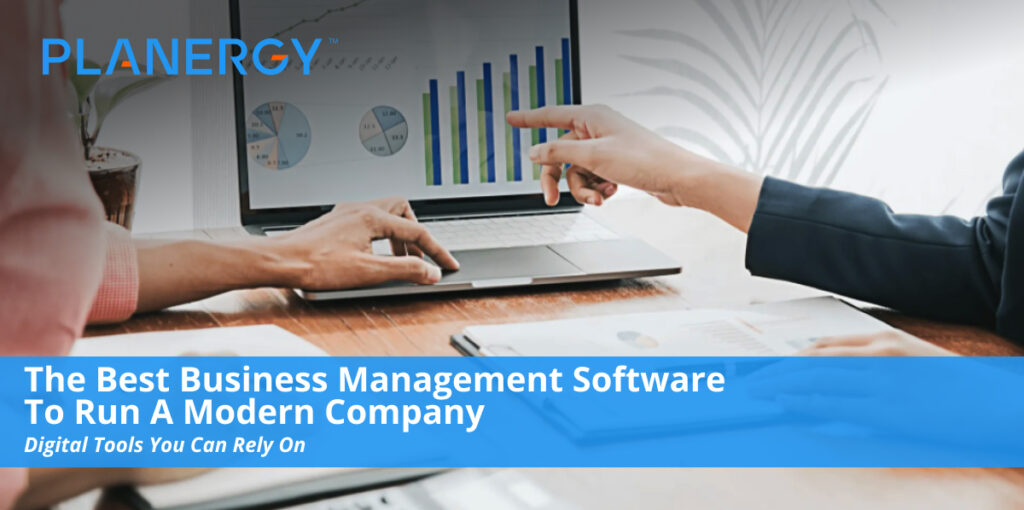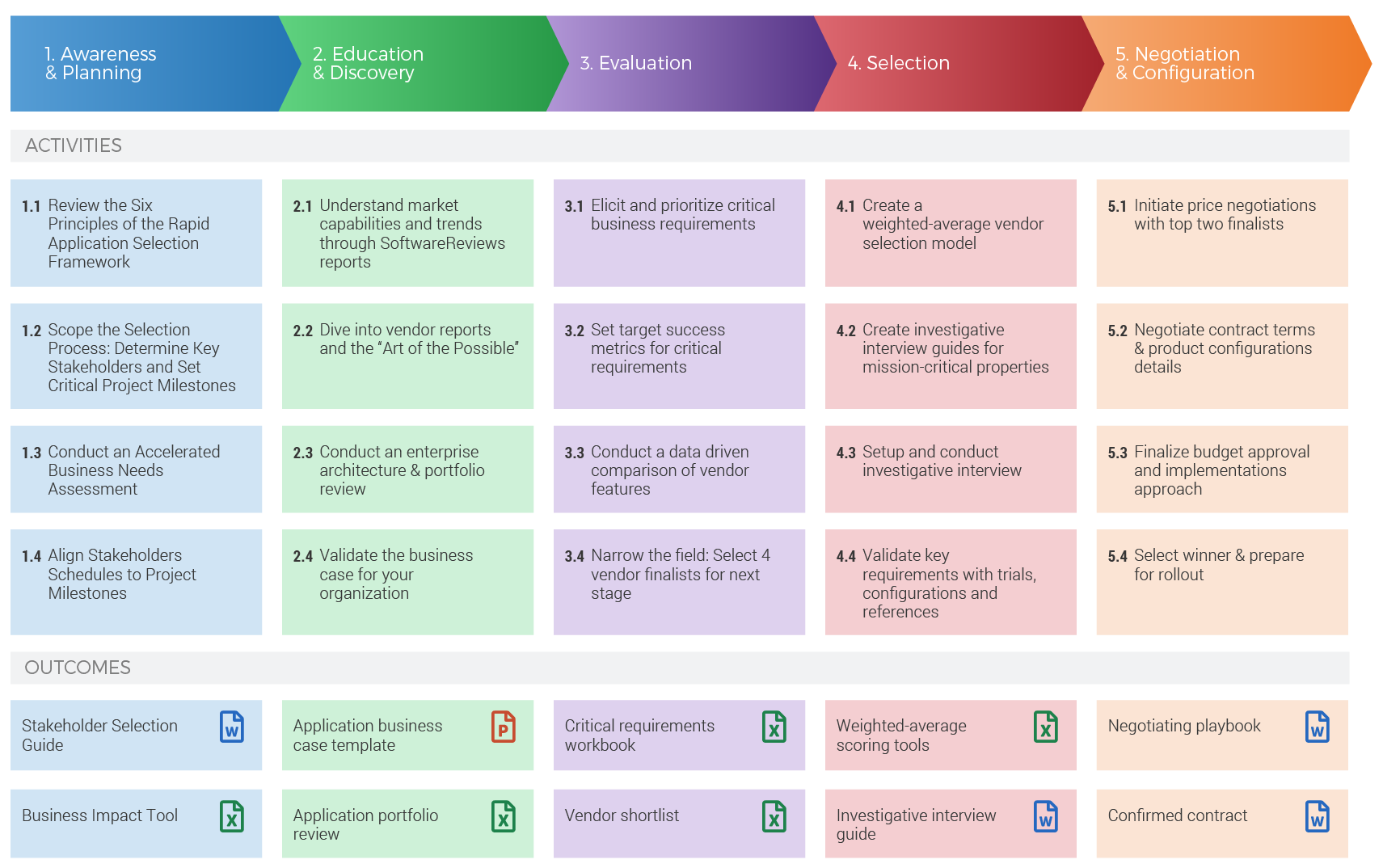
In the fast-paced world of business, choosing the right management software can be a game-changer. Imagine your business as a well-oiled machine; the software you select is the engine that drives it. The wrong choice can lead to inefficiencies and headaches, while the right one can streamline your operations, boost productivity, and give you a competitive edge. So, how do you navigate the vast landscape of business management tools to find the perfect fit? Let's dive in and explore the key factors to consider when selecting modern management solutions.
Understanding Your Business Needs
Before you even start looking at software options, you need to have a clear understanding of your business needs. What are the pain points in your current operations? Where do you see room for improvement? Are you looking to enhance customer relationship management (CRM), streamline project management, or optimize financial processes? Identifying these needs will help you narrow down your software selection criteria.
Assessing Current Business Operations
Take a close look at your current business operations. Are there any bottlenecks or inefficiencies that are holding you back? For example, if your sales team is struggling with lead management, you might need a CRM system with robust lead tracking features. If your project management is chaotic, you might benefit from software that offers Gantt charts and task dependencies.
Defining Your Goals
What do you hope to achieve with new business management tools? Are you aiming to increase sales, improve customer satisfaction, or reduce operational costs? Defining your goals will help you focus on the management software features that matter most to your business.
Key Factors to Consider in Software Selection
Once you have a clear picture of your needs and goals, it's time to evaluate the key factors that will influence your software selection. Here are some crucial aspects to consider:
Scalability and Flexibility
Your business is not static; it grows and evolves over time. Therefore, your management software should be scalable and flexible enough to adapt to your changing needs. Look for solutions that offer modular features, allowing you to add or remove functionalities as your business grows.
Integration Capabilities
In today's interconnected world, integration capabilities are essential. Your management software should seamlessly integrate with other tools and platforms you use, such as email marketing software, accounting systems, and e-commerce platforms. This ensures a smooth flow of data and reduces the need for manual data entry.
User-Friendliness
The best management software is useless if your team can't use it effectively. User-friendliness is a critical factor to consider. Look for software with intuitive interfaces, easy navigation, and comprehensive training resources. The easier it is for your team to adopt the new software, the faster you'll see the benefits.
Security and Compliance
Data security and compliance are non-negotiable in today's business environment. Ensure that the software you choose complies with relevant regulations and offers robust security features. Look for certifications like ISO 27001 and compliance with standards like GDPR or HIPAA, depending on your industry.
Cost and ROI
While cost is always a consideration, it's important to look beyond the initial price tag. Consider the total cost of ownership, including implementation, training, and ongoing support. More importantly, evaluate the potential return on investment (ROI). How will the software improve your business operations and contribute to your bottom line?
Evaluating Management Software Features
Now that you have a framework for evaluating software, let's delve into the specific features you should look for in modern management solutions.
Customer Relationship Management (CRM)
A robust CRM system can transform your customer interactions. Look for features like lead management, sales pipeline tracking, and customer support ticketing. Advanced CRM systems also offer analytics and reporting tools to help you make data-driven decisions.
Project Management
Effective project management is crucial for delivering projects on time and within budget. Look for software that offers task management, time tracking, and collaboration tools. Gantt charts, Kanban boards, and project templates can also be valuable features.
Financial Management
Accurate financial management is the backbone of any business. Look for software that offers accounting, invoicing, and expense tracking features. Integration with banking and payment gateways can also streamline your financial operations.
Human Resources Management
Your employees are your most valuable asset. Look for software that offers recruitment, onboarding, and performance management features. Payroll and benefits administration tools can also simplify your HR processes.
Inventory Management
For businesses that deal with physical products, inventory management is critical. Look for software that offers real-time inventory tracking, order management, and supplier management features. Barcode scanning and automated reorder points can also enhance your inventory control.
Making the Final Decision
Once you've evaluated your options, it's time to make the final decision. Here are some steps to guide you through the process:
Demos and Free Trials
Most software providers offer demos or free trials. Take advantage of these to get a hands-on feel for the software. This is a great opportunity to see how the software fits into your workflow and to identify any potential issues.
User Reviews and Testimonials
Reading user reviews and testimonials can provide valuable insights into the software's strengths and weaknesses. Look for reviews from businesses similar to yours to get a relevant perspective.
Vendor Support and Training
The level of support and training offered by the vendor can make a big difference in your software implementation. Look for vendors that offer comprehensive training resources, responsive customer support, and a strong community of users.
Conclusion
Choosing the right modern business management software is a critical decision that can significantly impact your business operations. By understanding your needs, evaluating key factors, and assessing specific features, you can make an informed choice that will drive your business forward. Remember, the right software is not just a tool; it's a partner in your business success.
So, are you ready to take the next step in optimizing your business operations? The journey to finding the perfect management software starts with a clear understanding of your needs and a systematic approach to evaluation. Don't let the complexity of the process overwhelm you. Think of it as building a house—each step is a foundation for the next, and the end result is a structure that supports and enhances your business.
FAQs
What are the most important features to look for in business management software? The most important features include CRM, project management, financial management, HR management, and inventory management. Additionally, look for scalability, integration capabilities, user-friendliness, security, and cost-effectiveness.
How can I ensure the software I choose will grow with my business? Look for software that is scalable and offers modular features. This allows you to add or remove functionalities as your business grows and changes.
What role does integration play in software selection? Integration capabilities ensure that your management software can seamlessly work with other tools and platforms you use. This reduces manual data entry and ensures a smooth flow of information.
How can I evaluate the user-friendliness of management software? Take advantage of demos and free trials to get a hands-on feel for the software. Additionally, read user reviews and testimonials to gain insights into the software's ease of use.
What should I consider when evaluating the cost of management software? Look beyond the initial price tag and consider the total cost of ownership, including implementation, training, and ongoing support. Also, evaluate the potential return on investment (ROI) and how the software will improve your business operations.


Posting Komentar